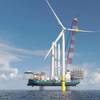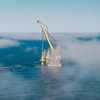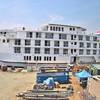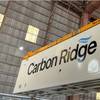NNS Squabble Seen Settled In Washington
Virginia's elected representatives will eye the acquisition's effect on jobs, and the warfare technology research funds that the shipbuilder, based in Newport News, Virginia, draws into the state. "This thing has become a political game now," said a veteran defense industry antitrust lawyer, who asked not to be named. Either way, analysts and antitrust experts say federal officials will look for feedback from Newport News, the nation's only producer of nuclear-powered aircraft carriers and an employer of roughly 17,000 people.
"It's really a matter of the assessment that the seller has to do to decide what is the better bid for the company at this point," said Richard Steuer, chairman of the antitrust practice group at Kaye, Scholer, Fierman, Hays & Handler. Newport News previously agreed to be bought by General Dynamics, the only other U.S. defense contractor with a nuclear shipyard, in an all-cash deal valued at $2.1 billion, or $67.50 per share. Analysts had widely expected the Pentagon to approve that deal, but with Northrop now crying monopoly and proposing an alternative, regulators may reevaluate the options.
Virginia Sen. John Warner, the head of the Senate Armed Services Committee, threw his support behind General Dynamics, which is also based in Virginia, but has reserved comment since Northrop's counteroffer. Los Angeles-based Northrop jumped in late Tuesday, offering Newport News the same price but in a combination of 75 percent stock and 25 percent cash. While not offering a premium to the original bid, Northrop said its deal was more appealing because it is more likely to be cleared by the Pentagon.
"It's quite straightforward," said Northrop Treasurer Albert Myers. "We believe that when the regulatory process is completed there is little chance the competing (General Dynamics) offer will be approved." Northrop, maker of combat electronic systems and the B-2 bomber, said the merger of General Dynamics and Newport News would create a "unhealthy monopoly" and make the United States vulnerable with only one capable nuclear ship and submarine builder.
But General Dynamics has dismissed such concerns, stressing there is already no competition in the market for nuclear-powered vessels. Newport is the only U.S. builder of aircraft carriers for the Navy and General Dynamics has focused its business on nuclear-powered attack submarines. Both Northrop and General Dynamics have discussed their proposals with Defense Department officials, according to people close to the companies. But only General Dynamics has stated publicly that it would not cut jobs as part of the acquisition, a key point for the Virginia delegation in Congress.
What's more, antitrust lawyers in Washington and New York said Department of Defense officials may look more favorably on the General Dynamics deal because it was a mutually negotiated transaction. That leaves the question of cost savings. How much money would either of these deals save the U.S. Navy in its procurement of nuclear-powered vessels? Northrop said it has not had time to evaluate the possible synergies between its operations and those of Newport News. General Dynamics previously pegged savings at about $2 billion annually, based on common submarine design tools and assets.
"The Northrop-Newport combination would offer less cost savings potential than General Dynamics due to the lack of submarine synergies, making the combination a more limited upside for the Navy," said Christopher Mecray, analyst at Deutsche Banc Alex. Brown. Newport News has been through this before. In 1999, General Dynamics placed an unsolicited bid for the company. Litton Industries, now part of Northrop, quickly followed. But in the end, Newport News remained independent both because of antitrust concerns and the belief among Newport executives that the company was worth more than the $1.8 billion being offered. At that time, Warner was a strong opponent of the General Dynamics deal. Asked about the Northrop bid, a spokesman for Warner said the senator met with Northrop Chief Executive Kent Kresa Tuesday night but has no comment "until he gets further facts and has the opportunity to examine the proposal." - (Reuters)









